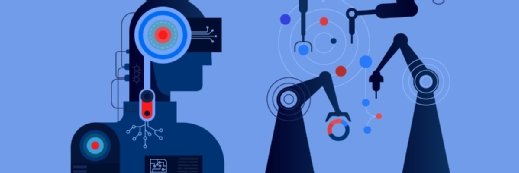
Getty Images
Artificial Intelligence-Based Scheduling Appears to Curb Physician Burnout
After experimenting with artificial intelligence-based scheduling, the American Society of Anesthesiologists noticed engagement scores and work-life balance improved.
Scheduling that leverages artificial intelligence (AI) produces various benefits, including easing the frequent burnout experienced by physicians, according to new data from the American Society of Anesthesiologists (ASA).
Researchers from the ASA examined the impact of implementing an AI-based scheduling system on physician experience. Their goal was to explore new possibilities for AI and discover ways to decrease the rate of physician burnout, which currently sits at around 50 percent according to the press release. The research was presented at ASA's ADVANCE 2022 conference, Jan. 28 to 30.
For the study, researchers assessed data collected from 2018 through the COVID-19 pandemic at Ochsner Health.
When done manually, creating a schedule generally requires an average of 60 to 75 hours monthly.
Meanwhile, the AI-based scheduling tool cut the time taken to generate new schedules to 14 hours.
Physician engagement rates, which reflect the physician’s level of engagement with the healthcare organization, also skyrocketed following the creation of this new system. After using the AI scheduling system for six months, the average engagement score for 60 anesthesiologists was 4.2 out of 5, significantly higher than the former average of 3.3.
These strong scores did not decrease during the COVID-19 pandemic, showing the method’s effectiveness and ability to reduce stress levels. This pandemic led to the creation of COVID intensive care units (ICUs), resulting in scheduling complications for physicians. However, the AI system was able to keep up with the speed of the disease, consistently staffing all ICUs.
Besides the significant reduction in time dedicated to scheduling and high physician engagement, an AI-based approach provides various other benefits.
"On average, the scheduling allows our anesthesiologists to have one or two mornings and one or two afternoons off a month to allow for increased work-life balance so they are better able to attend events important to them," said Dhruv Choudhry, MD, lead author of the study and anesthesiology resident at Ochsner Health in New Orleans, in the news release.
Launched in 1905, ASA is an organization of 55,000 members that aims to promote the field of anesthesiology.
AI scheduling appears to improve work-life balance for physicians and could result in a higher retention rate due to decreased burnout. According to a survey on physician burnout, the year 2020 saw the physician burnout rate drop 4 percent compared with five years prior.
In addition to scheduling benefits, AI is improving the lives of anesthesiologists in the operating room. A recent study explained how drug administration is possible through AI, allowing doctors to attend to other responsibilities while performing surgery, such as monitoring patient comfort levels and making sure they are physiologically stable.






